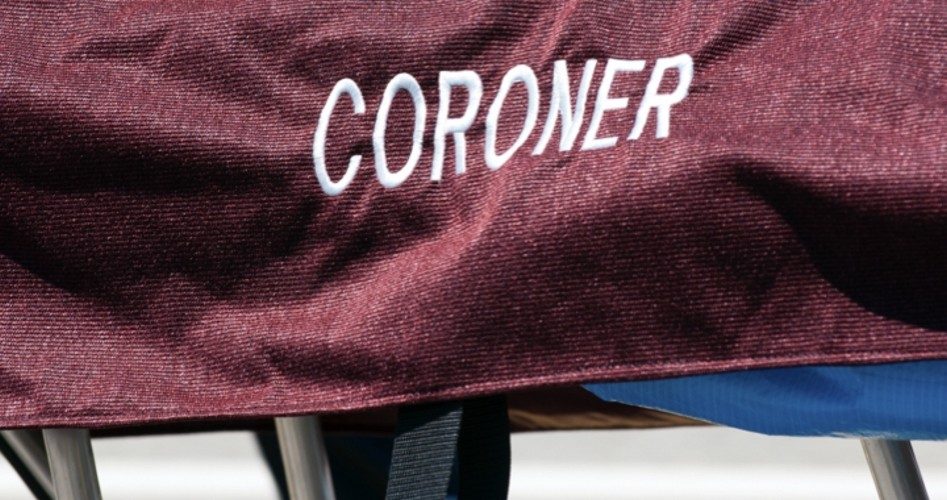
The pathologists who conducted a second autopsy on George Floyd, who died while a Minneapolis police officer restrained him with a knee to the back of the neck, say Floyd died of asphyxia.
Hired by Floyd’s family, celebrity pathologist Michael Baden and the University of Michigan’s Allecia Wilson dispute the medical examiner in Hennepin County, Minnesota, who concluded that Floyd’s death was a homicide but that he was not, in layman’s terms, strangled to death.
Another finding in the county coroner’s final report is this: In addition to his health problems, Floyd had taken fentanyl, a dangerously potent narcotic related to heroin. An overdose can cause one to stop breathing.
Derek Chauvin, 44, the former officer who restrained Floyd, faces third-degree murder and second-degree manslaughter charges.
Coroner’s Report
The county’s preliminary findings showed up in the criminal complaint against Chauvin, who pinned Floyd to the ground with a knee after he resisted arrest and refused to obey the commands of four police officers. They were arresting him for passing a fake $20 bill to a store clerk.
Chauvin kept Floyd restrained for nearly nine minutes.
“The autopsy revealed no physical findings that support a diagnosis of traumatic asphyxia or strangulation,” the complaint says. “Mr. Floyd had underlying health conditions including coronary artery disease and hypertensive heart disease. The combined effects of Mr. Floyd being restrained by the police, his underlying health conditions and any potential intoxicants in his system likely contributed to his death.”
And while ruling the death a “homicide,” the coroner’s final release says Floyd died of “cardiopulmonary arrest complicating law enforcement subdual, restraint, and neck compression,” meaning his heart stopped while Chauvin had him pinned.
That report also suggests Floyd was a drug addict with serious health problems. His “other significant conditions,” it says, were “arteriosclerotic and hypertensive heart disease; fentanyl intoxication; recent methamphetamine use.”
Fentanyl is a synthetic opioid pain reliever, the Centers for Disease Control says, that is “50 to 100 times more potent than morphine,” a significant fact given that opioids are respiratory depressants. Fentanyl “interferes with the user’s ability to breathe,” a report from the National Drug and & Alcohol Research Centre in Australia says.
“The most dangerous side effect of fentanyl is it can cause you to stop breathing,” another health website says.
Floyd told the cops he couldn’t breathe before Chauvin pinned him to the ground, the criminal complaint says.
Fentanyl overdose killed an actor in the television program Twilight just last month.
The singer Prince died of a fentanyl overdose four years ago.
Baden-Wilson Conclusions
But neither Fetanyl nor cardiovascular disease were Floyd’s problems, Baden and Wilson say.
“Baden said that they found ‘rough abrasions’ on Floyd’s left eye and left cheek ‘and a little bit in the front, on the nose and mouth areas,’” the Star-Tribune of Minneapolis reported. “He said they also found “scrape marks on the back side of his left shoulder.”
Preliminary findings released through the attorneys later in the day indicated that the doctors also found a hemorrhage “over the vertebral bodies and in the cervical region,” as well as on the outside of the carotid artery and in the wrists and forearms.
“The cause of death, in my opinion, is asphyxia due to compression of the neck,” Baden said….
“I wish I had the same coronary arteries that Mr. Floyd had that we saw at the autopsy.”
Wilson told the New York Times likewise. “We have seen accounts from the complaint and based on that, yes our findings do differ,” she said. “Some of the information I read from that complaint states that there was no evidence of traumatic asphyxia. This is the point in which we do disagree. There is evidence in this case of mechanical or traumatic asphyxia.”
Baden told the Times that Floyd “was in good health.”
Epstein Case
Baden is often involved in cases where the cause of death is disputed. The celebrity pathologist most recently challegened the findings of the New York City coroner in the death of Wall Street financier and sex trafficker Jeffrey Epstein.
Epstein supposedly hanged himself in his jail cell while under indictment for sex-trafficking, but Baden — working for Epstein’s family — said the evidence and Epstein’s neck injuries were consistent with strangulation, not suicide.
Baden, 85, also conducted an autopsy of Michael Brown, who was shot to death when he attacked a police officer, and testified at the murder trial of O.J. Simpson.
Baden was also in charge of the forensic panel that examined pathological evidence in the assassination of President Kennedy for the House Select Committee on Assassinations.
Photo: SoCalShooter / E+ / Getty images Plus



